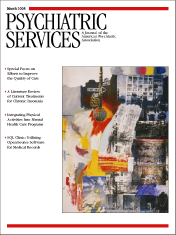Jung: A Biography
This latest book on the life of Carl Jung provides a comprehensive biography of one of the greatest icons in psychology in the 20th century. It follows Jung's life from childhood to his death in a single definitive volume. The research is meticulous and draws on unprecedented access to previously unavailable and restricted private archives, which include analytical diaries and early drafts of Jung's own writings. The author, Deirdre Bair, paints an engrossing and very human portrait of Carl Jung, who for more than half a century has been the subject of much dispute and conjecture in both Europe and the United States.
This book is a beautifully written biography of the father of analytical psychology, who became the first president of the international Psychoanalytic Association. However, even though the author presents a sweeping narrative of the public man and a shrewd examination of his character, private life, family, and friends, the book does not give enough attention to the discussion and critique of the scientific values of Jung's lifelong research from the standpoint of new research in this field.
In chapters 1 though 14, Bair cover's Jung's grandfather's emigration from Germany to Switzerland as well as Jung's childhood, school years, medical certification, marriage, children, and first contact with Sigmund Freud and his travel with Freud to the United States.
Chapters 15 through 38 span the time of Jung's scientific maturity; his main publications; the cracking and breaking up of his relationship with Freud; his interest in tribal mentality; his travels to equatorial Africa, India, Ceylon, and New Mexico; and his lifelong interest in alchemy, astrology, and telepathy.
Chapter 39 covers the final period of Jung's life after he suffered an embolism, in 1960, which left him more often with ill health than good health until his death in June 1961.
Included at the end of the book, and of possible interest to readers, is a chapter-length epilogue—"The So-Called Autobiography"—and an appendix: "The Honegger Papers," delivered at the 1910 Nuremberg congress and previously presumed lost.
In conclusion, the contents of each chapter of Jung: A Biography provide us with a better understanding of Carl Jung as a researcher, a family man, and a European citizen in the difficult period of European history before, between, and after the first and second World Wars.
Dr. Sheikman lives in Shrewsbury, Massachusetts.



